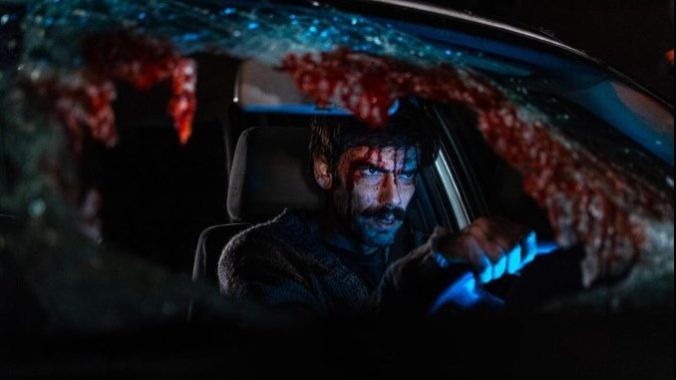When Evil Lurks is a Nightmarish New Take on the Possession Subgenre

When Evil Lurks starts with a bang. Well, two bangs, to be precise. The film opens with brothers Pedro (Ezequiel Rodriguez) and Jimmy (Demián Salomon) awoken by a pair of gunshots that pierce through an otherwise quiet night in their sleepy rural town. The two then set off to investigate the noise, only to come across a rotting subhuman bathing in his own fetid fluids and excrement.
Pedro and Jimmy immediately recognize the threat at hand. Clearly, this isn’t their first rodeo. They know exactly how to proceed: get this creature as far away from their community as possible. As they haul the swollen being into their pickup truck, it becomes evident that this is something much more sinister than your regular creature feature. Indeed, this bubbling monster is infected with something unspeakable that will continue to spread and spread until it is too late. Directed by Demián Rugna, When Evil Lurks follows Pedro and Jimmy’s desperate attempts to contain the infectious evil at hand. It quickly leaps out from under a boldly original and bone-chilling premise and wastes no time hooking its viewers and setting the scene for a film that is impressively committed to defying horror conventions and being its own beast.
-

-

-

-

-

-

-

-

-

-

-

-

-

-

-

-

-

-

-

-

-

-

-

-

-

-

-

-

-

-

-

-

-

-

-

-

-

-

-

-








































